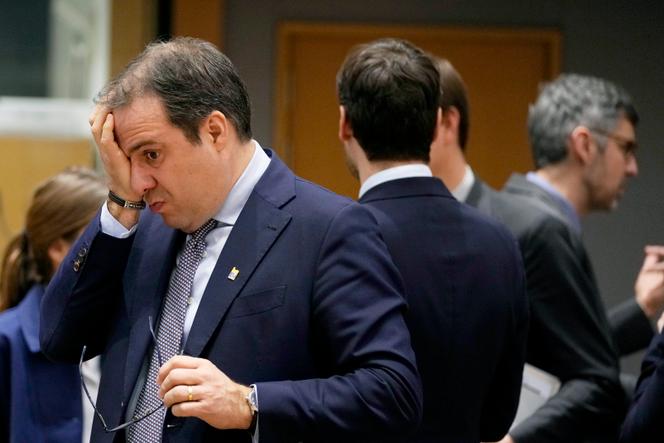


"Fight back against the EU's war on farming": Such is the title of a conference held in Brussels on Wednesday, January 24, organized by the Hungarian Mathias Corvinus Collegium (MCC) – an education institution which is generously funded by the government of nationalist Viktor Orban and chaired by his political director, Balazs Orban (no relation). The conference will be attended by Véronique Le Floc'h, president of the French Coordination rurale farmer's union.
This second-largest French farmers' union has called on its troops to demonstrate on that same day in the Belgian capital – on the Place du Luxembourg in front of the European Parliament – to denounce "the excesses of the Common Agricultural Policy [CAP]." Other delegations, from Belgium, the Netherlands, Germany, Italy, Ireland and Hungary, were expected to attend, at a time when protest movements across Europe are expanding, between roadblocks and tractor rallies.
With less than six months to go before the June European elections, farmers' anger is taking center stage in a campaign that was just getting underway and which, for the time being, has seen far-right and nationalist parties rise in the polls. Against this backdrop, European leaders are aware of the urgent need to contain the movement and defuse tensions.
On Tuesday, January 23, Europe's agriculture ministers met in Brussels for a lengthy debate on the subject, before the Commission was set to launch a "strategic dialogue" on Thursday, aimed at calming the debates that the green transition is stirring up in European farms and other agricultural businesses.
"The far right is trying to use farmers as political leverage. We have to defend them without political manipulation," said the Spanish minister, Luis Planas. He continued: "This dialogue should have been started when the new CAP or [European] Green Deal proposals were presented. But it's never too late, if it's done properly. Farmers' voices must be heard."
Indeed, for over a year now, rural populations have been sending out signals of discontent: Citing the inflation that is stifling them, the Ukrainian products that freely enter the domestic market and create unfair competition, and the increasing number of environmental regulations that are ruining their lives. In Italy, Sweden and the Netherlands, the far-right has won elections on the back of these grievances.
Against this backdrop, since September 2022 the right-wing European People's Party (EPP) has set itself up as the "farmers' party," waging legislative battles on their behalf to gut certain Green Deal texts, such as the July 2023 nature restoration law, or that on halving the use of pesticides, in November 2023. At this stage, European leaders have not really taken any measures that will shake up farmers' lives, but but agricultural professionals are aware that they will have to contribute more in the future, on a par with industrialists, energy companies and households.
You have 45% of this article left to read. The rest is for subscribers only.
